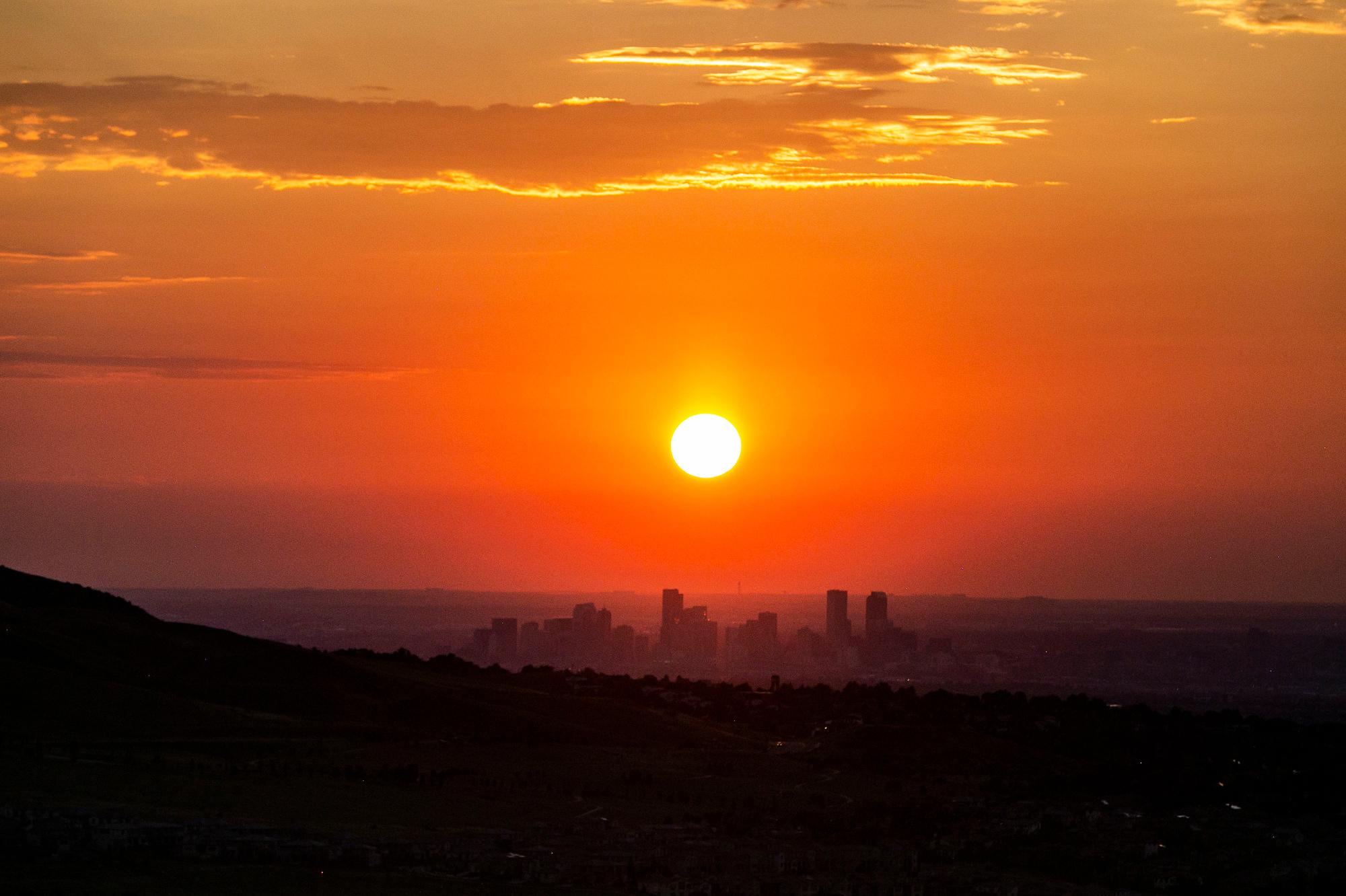
Nikki Fox was only able to walk her two dogs at Westminster Hills Dog Park for half an hour on Sunday before her throat started to feel irritated.
“It felt just oppressive and muggy and kind of like my lungs just weren't having a good time,” she said.
Fox’s dogs needing to go out was a good reason for her to leave the house, which she has been “pent up” in while smoke blankets the Colorado sky. On her walk, she noticed she could no longer see the mountains in the distance, one of the reasons she visits this park.
The smoke — which for weeks has blown in from wildfires burning in other western states — is filling the air with high levels of ozone and fine particulates, lowering visibility. It has been especially bad for the last week, and the conditions are expected to persist across the state through at least Tuesday. The National Weather Service expects the smoke to move north out of the state during the middle of the week.
Smoky days have been common in Colorado this summer, despite the relatively low number of large fires burning within the state. The Colorado Department of Public Health and Environment says much of the smoke has come from California, where the Dixie Fire has grown into the second largest fire in the state’s history. It has burnt 463,000 acres so far, destroying hundreds of buildings. Several people living in the burn area are still missing.
Health officials are advising people to limit outdoor activities if the air quality is unhealthy in their neighborhood, which they can determine by checking CDPHE’s air quality report. Another test is to look outside to check whether visibility is under five miles.
People particularly vulnerable to unhealthy air, such as young children, the elderly, or those with lung disease, should completely avoid outdoor activity. Research shows that non-stop ozone exposure can lead to long-term health issues, such as heart and lung diseases or a decrease in birth weights.









